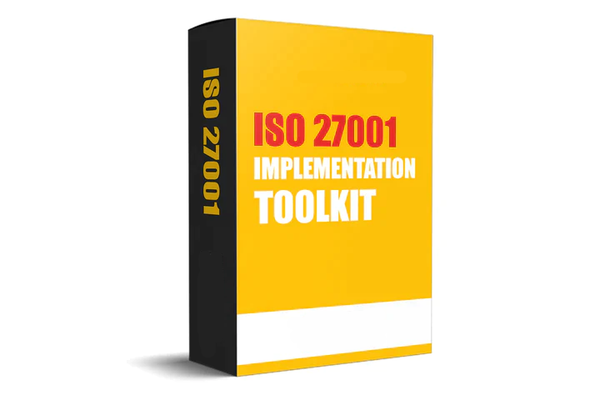What Is ISO 27001 ?
Securing sensitive data is more important than ever in today's dynamic, interconnected world. Information is the lifeblood of many businesses and institutions. ISO 27001 is a comprehensive guide that illuminates the way to an effective information security management.ISO 27001 is a systemic approach that can be used to strengthen defenses and mitigate risks. It also fosters a culture of vigilance. This guide explores ISO 27001 and its importance, core principles, implementation complexities, and the many benefits it offers organizations who embrace its robust framework.
What is ISO 27001?
ISO 27001 is a standard for an ISMS (international information security management system). ISO 27001, published by the International Organization for Standardization and the International Electrotechnical Commission, is a standard that outlines a systematized approach to managing sensitive data, identifying weaknesses, and implementing controls to mitigate risk. The ISO 27001 standard is intended to assist organizations in establishing, maintaining, and continuously improving their information security posture.
ISO 27001: Information Security Challenges and Solutions
ISO 27001 stresses a risk-based security approach. Organisations must conduct a comprehensive risk assessment in order to identify and evaluate potential risks for their information assets. It helps prioritize security efforts, and allocate resources efficiently to manage or mitigate these risks.
ISO 27001 is a standard that focuses on confidentiality, integrity and availability. It contains guidelines on how to implement controls that prevent unauthorized access and ensure accuracy of data, as well as maintaining the availability and reliability of critical systems and information.
- Continuous Improvement: ISO 27001 encourages continuous improvement by promoting regular monitoring, reviews, and updates of the ISMS. It helps organizations to adapt to changing security threats and challenges through continuous enhancement of their security measures.
- Documentation and accountability: ISO 27001 requires documentation of security policies and procedures. This documentation can help establish accountability and transparency in the organization. It makes it easier to manage security-related activities and track compliance.
- Business Continuity Plan: The standard encourages companies to create business continuity plans and disaster recovery strategies. These plans are designed to ensure that essential business functions continue even if there is a disruption, minimising downtime and financial losses.
- Senior Management Engagement: ISO 27001 stresses the importance of leadership involvement and commitment in information security. Senior management involvement helps to create a culture for security within the organization. It also ensures that security goals are aligned with business objectives.

ISO 27001 Certification and Beyond
ISO 27001 certification represents a major achievement for any organization. It demonstrates their commitment to implement and maintain a robust Information Security Management System (ISMS). The journey does not end after certification. To ensure information security, organizations should focus on several aspects beyond certification.
ISO 27001 promotes a culture that encourages continuous improvement. After certification, organizations must regularly evaluate and update their ISMS in order to keep up with new threats, technological advances, and changes within the business.
- Employee Awareness and Training: Information Security is a shared Responsibility. Regular training and awareness programmes help employees remain informed about best practices in security and their role to safeguard sensitive information.
- Incident Response and Recover: Organizations must regularly test and update plans for incident response and recovery. Exercises and drills that simulate security incidents can ensure an effective and swift response.
- Vendors and Third-Party management: As businesses evolve, it is important to assess the security practices adopted by vendors and third parties. This will ensure that they are in line with the security standards of the organization.
- Regulatory Compliance: Regulations may change with time. Organisations should keep up to date with relevant regulations, and ensure compliance by regularly reviewing and adjusting their ISMS.
- Performance Metrics & Monitoring: Set up key performance indicators to monitor the effectiveness of your ISMS. Regular reporting and monitoring of these metrics will help you identify areas that need improvement.
- Management Review: Senior managers should review performance of ISMS periodically and take strategic decisions to improve information security.
- Audits and Assessments: Perform internal audits and assessments to evaluate the effectiveness. These reviews can identify areas for improvement and gaps.
- Emerging Technologies and Threats: Be informed of emerging technologies and security threats. This knowledge allows organizations to adapt their security measures proactively to new challenges.
Conclusion
ISO 27001 is a framework that provides organizations with a structure to create and maintain an effective information security management system. Adhering to ISO 27001's principles allows organizations to manage risks proactively, improve security measures and build trust among stakeholders. ISO 27001 is a great way to protect sensitive data and contribute to the success of an organization.






